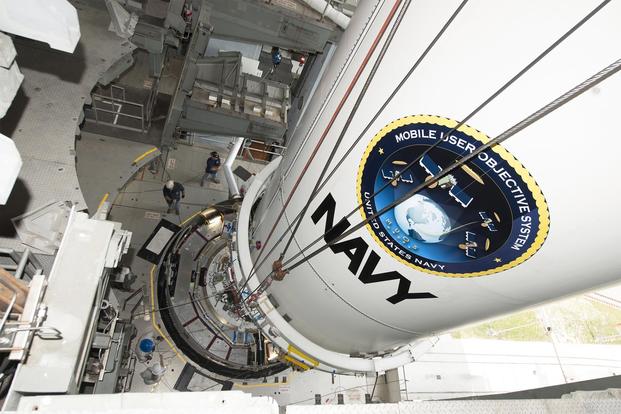Navy and Marine Corps officials sidestepped questions Monday over whether they will commit their own resident experts to the new sixth branch of the military, Space Force.
Rear Adm. Christian Becker, commander of Space and Naval Warfare Systems Command (SPAWAR), said decisions on shifting personnel to Space Force are above his pay grade and have yet to be finalized.
He said the Defense Department is still studying "how best to support that Space Force" and "how to meet the mission needs of the Space Force."
Until the DoD decides, his personnel are involved in other missions, Becker said.
Related content:
- Lawmakers Increasingly Skeptical Over Pentagon's Space Force Proposal
- Cost, Manning of Space Force May Grow, Shanahan Says
- Pentagon's Space Force Proposal Asks for $2 Billion over Five Years
- Trump Signs Directive That Would Place Space Force Within Air Force
Brig. Gen. Lorna Mahlock, the first African-American woman to be nominated to one-star rank in the Marine Corps and now director of command, control, communications and computer (C4) for the Marine Corps, was equally non-committal, saying it is a "little premature to have that discourse" on Marine Corps involvement in the Space Force.
The Coast Guard's chief of naval research, Capt. Greg Rothrock, said only that his service "certainly was not a leader" on the Space Force issue and is focused on being a "smart user of the capabilities that are available" from advances in space technology.
Becker, Mahlock and Rothrock were on a panel at the Sea-Air-Space exposition at National Harbor, Maryland, to discuss space as the military's new frontier.
In June 2018, President Donald Trump directed the DoD to begin planning for a Space Force; in February, he signed an order directing all military space functions to come under a new Space Force, to be overseen by the Department of the Air Force.
However, Congress is still debating its size, composition and costs, and questioning what the Space Force will do that the Air Force isn't doing already.
At a Center for Strategic and International Studies event in March, Acting Defense Secretary Patrick Shanahan said that he expects 15,000 to 20,000 personnel to be assigned to Space Force. According to his Navy biography, Becker has about 10,500 military and civilian personnel in SPAWAR.
On Sunday, 43 former DoD, Air Force and intelligence officials signed an open letter to express "strong support" for the creation of a Space Force.
The letter said in part that a Space Force would "develop military space culture and ethos" and "recruit, train, educate, promote and retain scientists, engineers and warriors with world-class space skills and talent."
Editor's note: This story has been updated to correct Brig. Gen. Mahlock's position.
-- Richard Sisk can be reached at Richard.Sisk@Military.com.











